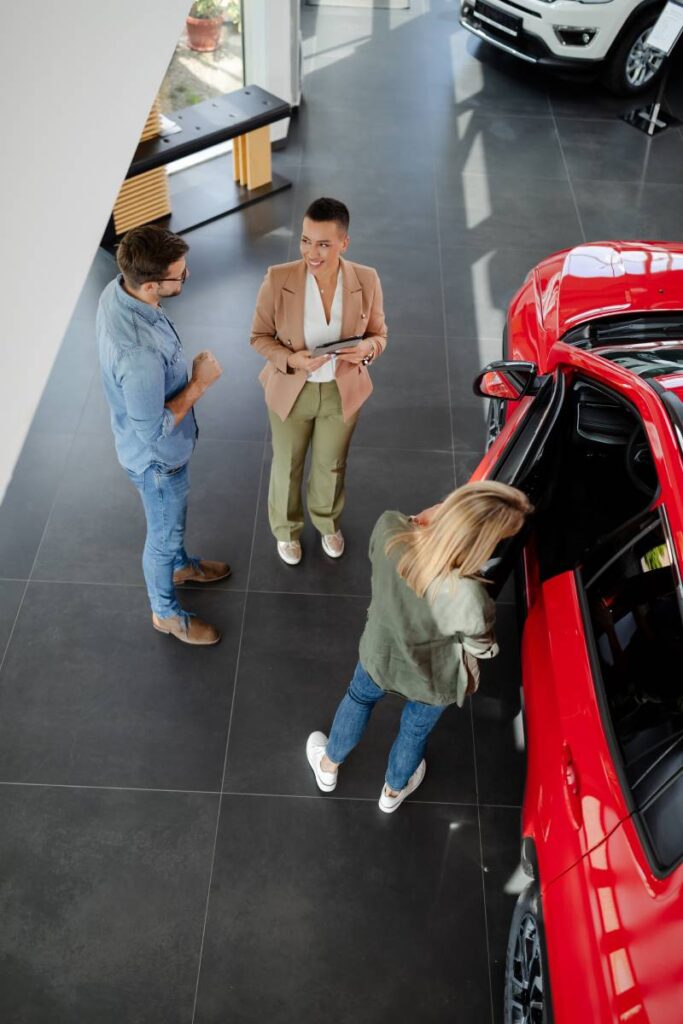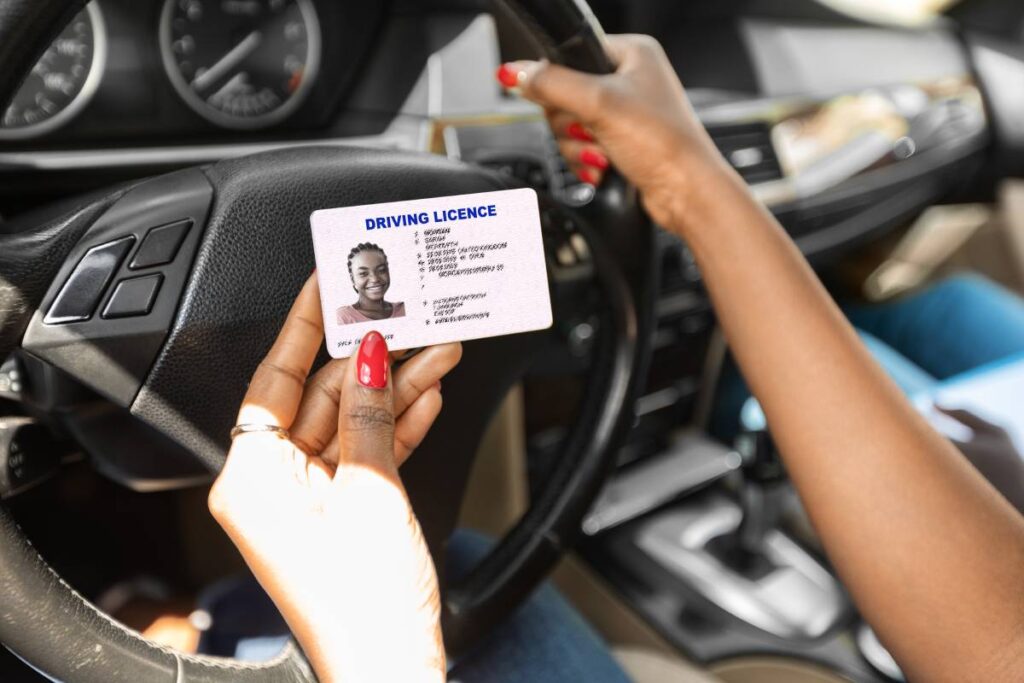Whether it’s your first car purchase, an upgrade to a work vehicle, the leap to a brand new EV, or transitioning to a family car, the decision comes down to your personal preferences. Do you prioritize affordability and reliability, or are you drawn to the allure of the latest electric vehicle with all its advanced features?
Regardless of your choice, buying a car ranks among the most significant investments you’ll make. It’s crucial to cover all your bases and ensure you’re fully satisfied and confident with your new vehicle, be it a medium SUV for suburban family life or a rugged 4×4 ute for work and weekend escapades.
In this guide, we provide you with a checklist of considerations to consider before purchasing a car, along with an overview of the various costs associated with car ownership in Australia.
What do you need to know when buying a car in Australia?
Buying a car in Australia can be an exciting but daunting experience, especially if you’re new to the process. There are several key factors to consider to ensure you make an informed decision and get the best value for your money. Let’s break it down into simple steps:

- Budget: Determine how much you can afford to spend on a car, taking into account not only the purchase price but also ongoing expenses like insurance, registration, fuel, and maintenance.
- Research: Research different car models to find one that meets your needs and fits your budget. Consider factors such as size, fuel efficiency, safety features, and reliability. Online reviews and comparison websites can be valuable resources.
- New vs. Used: Decide whether you want to buy a new or used car. While new cars come with the latest features and warranties, used cars are often more affordable. Keep in mind that used cars may have higher maintenance costs and a shorter lifespan.
- Dealer vs. Private Seller: Consider whether you want to buy from a dealership or a private seller. Dealerships offer convenience and may provide warranties and financing options, but private sellers may offer lower prices. Make sure to thoroughly inspect any used car before purchasing it from a private seller.
- Test Drive: Always test drive a car before making a purchase. Pay attention to how it handles, its comfort level, and whether it meets your driving needs. Don’t hesitate to ask questions about the car’s history and maintenance records.
- Vehicle History Check: Obtain a vehicle history report to check for any past accidents, damage, or outstanding finance on the car. This can help you avoid buying a car with hidden issues.
- Negotiation: Don’t be afraid to negotiate the price, especially when buying from a private seller or dealership. Do your research beforehand to know the fair market value of the car and be prepared to walk away if the price isn’t right.
- Finance Options: If you need financing, explore your options carefully. Shop around for the best interest rates and loan terms, and consider getting pre-approved for a loan before shopping for a car. Be aware of any additional fees or charges associated with the loan.
- Insurance: Arrange insurance coverage for your new car before taking ownership. Compare quotes from different insurance providers to find the best coverage at the most competitive price.
- Registration and Transfer: Once you’ve purchased the car, you’ll need to register it in your name with the relevant state or territory authority. This usually involves paying registration fees and transferring the vehicle title.
- Maintenance and Servicing: Keep up with regular maintenance and servicing to ensure your car remains in good condition and retains its value. Follow the manufacturer’s recommendations for oil changes, inspections, and other routine maintenance tasks.
- Know Your Rights: Familiarize yourself with your rights as a consumer when buying a car, including warranties, lemon laws, and consumer protection regulations. If you encounter any issues with your purchase, don’t hesitate to seek legal advice or assistance.
If you want to buy a car in Australia, just follow these steps and do your homework, and you’ll be good to go. Take your time, ask as many questions as you need, and make sure to prioritize your needs and budget. If you do so, you’ll find the perfect car for you and feel confident about your purchase.
Costs associated with car ownership in Australia
Aside from the initial cost of buying a car, there are six main expenses that can significantly impact your overall car ownership expenses. Let’s dive into these costs to get a clearer picture of what the average Aussie driver can anticipate spending on them annually.
Here’s a breakdown of the weekly average expenses for running a car, based on data from the Australian Automobile Association’s (AAA) December 2022 Transport Affordability Index:
- Fuel: $98.31
- Car loan costs: $155.96
- Car insurance: $31.67
- Maintenance & service: $31.48
- Registration & licensing: $30.17
- Total: $347.59

Fuel
Fuel is likely to be your most frequent car-related expense. Simply using your car consumes fuel, and most drivers find themselves refilling their tanks every couple of weeks. The Australian Competition and Consumer Commission (ACCC) reported an average petrol price of $1.77 per litre in the September 2022 quarter, up from $1.52 the year before. On average, the AAA found that a two-car household spends $98.31 weekly on fuel, totalling over $5,100 annually.
Savings tip: Utilize smartphone apps like PetrolSpy, GasBuddy, Fuel Map, and MotorMouth to find the cheapest fuel options nearby. Prices can vary significantly between stations, sometimes by as much as 20 cents!
Car loan costs
Car loans are another frequent expense, typically paid out weekly. The cost of car loans doesn’t differ much between cities assuming the same interest rate. Instead, factors influencing car loan rates include the car’s age and model, your credit history, financial status, and the lender itself. On average across the eight capital cities, car loan repayments can exceed $8,100 annually.
Savings tip: Explore various car loan products as interest rates can vary widely. Securing a loan with a favourable interest rate can help you pay less than the average figure.
Car Insurance
Car insurance is essential in Australia, with Compulsory Third Party (CTP) insurance being mandatory. It covers liability costs for injuries or death caused to others. However, it’s recommended to consider higher levels of coverage like:
- Third-party insurance (covers damage to other people’s property)
- Third-party fire and theft insurance (includes fire and theft protection for your car)
- Comprehensive insurance (highest level, covering all of the above plus damage to your car)
Premiums for car insurance vary based on factors such as your car, age, driving history, gender, suburb, and more. Shopping around for quotes from different providers each year can help save money. According to AAA data, the average weekly household cost of comprehensive car insurance ranges from $18.29 in Perth to $43.38 in Adelaide. This amounts to approximately $950 to over $2,200 annually, depending on the city.
Maintenance Costs and Servicing
Services and repairs are significant ongoing expenses of car ownership. Regular servicing is essential for your car’s functionality, and unexpected issues can arise, like tyre replacements or faulty air conditioners. Many new cars offer capped-price servicing, limiting service costs for a period.
Maintenance costs vary widely, including tyre replacements and other repairs. On average, households spend around $31.48 per week or $1,637 annually on maintenance. There’s a significant difference between cities, with Canberra having the highest weekly cost at $42.02 and Adelaide the lowest at $26.15.
Savings Tips: Consider using local mechanics, which can be cheaper than dealerships. Check their credibility through online reviews. Also, be aware that servicing costs can increase after certain mileage thresholds, typically around every 60,000 kilometres, depending on the car.

Registration & Licensing
To drive a car on public roads in Australia, it must be registered with your state or territory’s Department of Transport, and you must hold a valid driver’s license. Registration involves an upfront fee and ongoing annual or semi-annual payments. Driver’s licenses also require periodic renewal, typically every few years. Compulsory Third Party (CTP) car insurance premium is often included in the registration cost.
According to AAA’s report, the average annual registration, CTP, and licensing costs for a two-car Australian family are $1,606 in capital cities and $1,527 in regional areas. Costs vary significantly between cities, with Hobart households paying the least and Canberra households paying the most.
Savings Tip: Opt for annual registration payments to save money, but consider your car ownership plans for the year.
Depreciation
Cars are generally not considered good investments as they lose value over time. A new car loses up to 10% of its value the moment you drive it off the dealership lot, and depreciation continues from there. All cars depreciate, but some depreciate faster than others. You can calculate depreciation using a simple formula comparing the car’s new value to its current value.
As an example: New car value: $35,880 Current value: $23,700 Depreciation rate: 33.94%
Savings Tip: Reduce depreciation by regularly servicing and maintaining your car, keeping it clean, and storing it in a garage to minimize wear and tear from the environment.
How much do all these expenses tally up to?
Well, quite a bit. When you own and drive a car, these costs are part and parcel of the deal, and unfortunately, there’s no escaping them. You’ll have to foot the bill for fuel, registration, servicing, and accept that depreciation is inevitable, no matter how meticulously you care for your vehicle.
According to RACQ’s 2022 Running Costs Report, the average running expenses for various vehicle types in Queensland paint a stark picture:
- Light cars: $841.38 per month / $10,096.56 per year
- Small cars: $1,038.65 per month / $12,463.75 per year
- Medium cars: $1,317.17 per month / $15,806.05 per year
- People movers: $1,575.15 per month / $18,901.80 per year
- Electric cars: $1,465.73 per month / $17,588.72 per year
- SUV small: $994.50 per month / $11,934.05 per year
- SUV medium: $1,309.40 per month / $15,712.76 per year
- SUV large: $1,572.26 per month / $18,867.17 per year
- Terrain: $1,927.35 per month / $23,128.19 per year
- Light commercial 4×2: $1,413.39 per month / $16,960.69 per year
- Light commercial 4×4: $1,634.25 per month / $19,611.02 per year
So, just owning a car could set you back well over $10,000 annually, and that’s on top of the initial purchase cost. However, as seen above, the annual expenses can vary significantly depending on the type of vehicle. If you prioritize practicality and efficiency over aesthetics, it’s worth exploring cars with lower servicing costs and fuel consumption.



